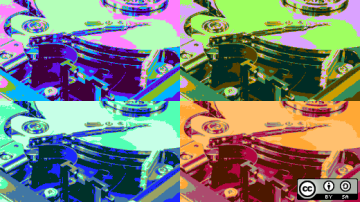
David Both is an Open Source Software and GNU/Linux advocate, trainer, writer, and speaker. He has been working with Linux and Open Source Software since 1996 and with computers since 1969. He is a strong proponent of and evangelist for the "Linux Philosophy for System Administrators."
He has written articles for magazines including, Linux Magazine, Linux Journal, and OS/2 Magazine back when there was such a thing. He currently writes prolifically for OpenSource.com. He particularly enjoys learning new things while researching his books and articles, building his own computers, and helping his grandchildren build their computers. He has found some interesting
and unusual ways of problem solving, including sitting on one computer on which he was working.
David has published five books with Apress. Four solo works, “The Linux Philosophy for SysAdmins,” August 2018, and a three volume self-study training course, “Using and Administering Linux — From Zero to SysAdmin,” released in December, 2019. He has also written one book with co-author Cyndi Bulka, "Linux for Small Business Owners" that was released in 2022.
David currently lives in Raleigh, NC, with his amazing and supportive wife, Alice.
He can be reached via email at LinuxGeek46@both.org or on Mastodon at @LinuxGeek46@linuxrocks.online.







Authored Comments
I see heavy swap usage even on systems with large amounts of RAM when doing nightly backups based on rsync. Many other times the swap usage is minimal but still present. It depends in large part upon your environment whether you see heavy swap usage or not.
My opinion - yes, I have a lot of those - is that from a technical standpoint swap was never intended to be a long-term substitute for having enough RAM. It was intended to eliminate the possibility of a hard crash when RAM was used up. The PHBs just decided that so long as it ran and did not crash they did not need to purchase more very expensive RAM. So it just became normal to run with lots of swap space.
I apologize for not responding sooner to you. I use Fedora for my workstations, especially my primary one. I use CentOS 6 and 7 on a couple servers.
I have used Ubuntu and Mint at various times but always return to Fedora. I used to use KDE as my desktop, but it has gone through too many cycles of major releases where it did not work properly for months at a time, and it has grown to have so many unnecessary (in my opinion) daemons spinning their wheels uselessly in the background and sucking up so much system resource, memory and CPU, that I have given up on it. I have used Cinnamon, LXDE, MATE, GNOME 2, GNOME 3, and Xfce for at least a month each. I have also dabbled a bit with a few others. I am currently using Xfce and find it very useful, flexible. and with all of the features I need.
I have not tried Solus. When I get some time I may install it on a VM to try it out.